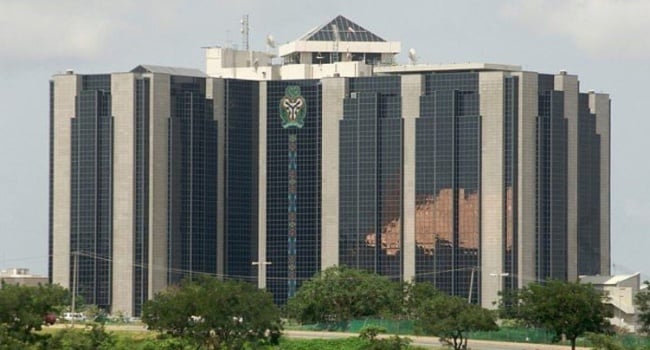Central Bank of Nigeria headquarters.
Murtala Sagagi, a monetary policy committee (MPC) member, says the excessive financial intervention by the Central Bank of Nigeria (CBN) and abuse of ways and means caused macroeconomic instability in Nigeria.
Macroeconomics analyses all aggregate indicators and the microeconomic factors that impact the economy, including changes in economic output, inflation, and interest and foreign exchange rates.
Sagagi made this known in a communique — on MPC’s meeting held from February 26 to 27 — released by the CBN on Tuesday.
He summarised the recent and systemic policy actions and inaction that resulted in macroeconomic instability in the country.
Advertisement
Sagagi also said the closure of Nigeria’s land border with neighbouring countries, between 2017 and 2023, disrupted the movement of food and livestock, causing macro-economic instability.
The MPC member said excessive abuse of ways and means, “which compromised previous monetary stance, especially in 2021 to 2022” also contributed to the situation.
Listing other factors, he said there was a “large scale sectoral injection of funds by the CBN without effective due diligence on the sub-sectors and the private sector beneficiaries”.
Advertisement
Speaking further, Sagagi said “the poorly-conceived Naira redesign policy towards the end of 2022 and its spill-over effects up to the second half of 2023” as well as “petrol subsidy removal with a limited pathway to cushion its wider social impact” engendered the macroeconomic instability.
He also factored in exchange rate unification, which he said occurred after prolonged foreign exchange market manipulations, which resulted in unprecedented depreciation of the naira.
On systematic issues that contributed to the macroeconomic instability, Sagagi mentioned a lack of crude oil refining capacity often leading to domestic shortages and high cost of energy.
“Neglect of agricultural transformation, thereby worsening food security, low productivity and value addition, and high post-harvest losses in the region of 40-60%, leading to off-season shortages and high food prices,” he said.
Advertisement
Furthermore, Sagagi identified mismanagement and corruption in the administration of subsidy regimes, massive debt accumulation and high debt-service-to-revenue ratio, weak non-oil export diversification, poor governance and weak public financial management practices, and persistent domestic insecurity as contributing factors.
Add a comment






